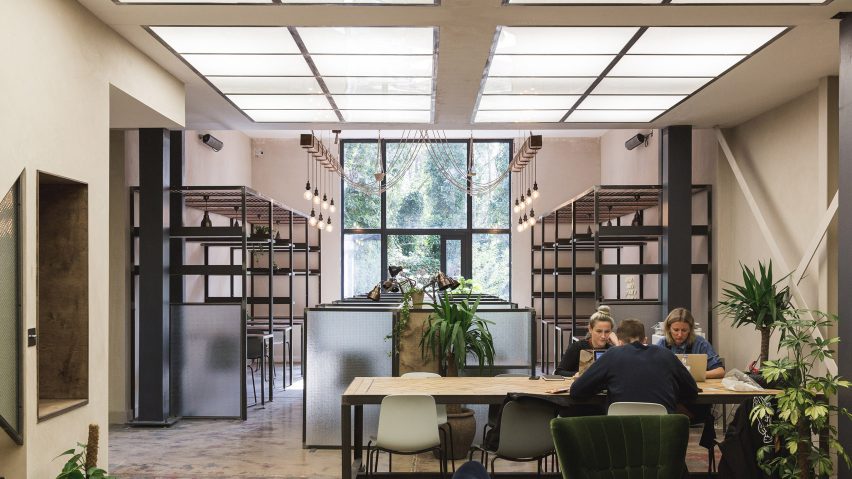London's Palmspace co-working studio occupies a former factory that has been adapted to offer extra room for artists and makers.
The space – which was launched by Hackney Downs Studios and created by an in-house design team – has individual workspaces set apart by steel-framed shelves, which double as drying racks.
There are also desks for members working on laptops, and even a nook for office dogs.
"We wanted to create a space that would allow people producing work in a physical or tangible medium to access the shared space," said designer Alfie Lay.
"This required a much more robust design, with plenty of storage for materials."
The design team sourced reclaimed parquet flooring, taken from derelict school buildings in and around London, and used it to cover desks. The metal shelving was treated, to lend it a raw, industrial finish, and bare pendants are dotted about the space.
The building's garden also formed a key part of the design. The area is accessed by a central glass door, and echoed inside by leafy plants that are placed around the office.
"The garden was totally overgrown when we started working on it," added Lay. "So many people don't have gardens at their homes, we thought it would be great if we could give people a chance to connect with the outside world at work instead."
"We wanted to bring the outside in as much as we could, whilst maintaining some of the original nature of the space."
The workspace also runs monthly workshops, and offers a sliding scale of membership prices. It's part of the Eat Work Art network, which has converted disused buildings across London into workspaces.
Co-working spaces are popping up around the world, offering more flexibility for both workers and companies. Earlier this year, Second Home opened a plant-filled workspace designed by SelgasCano in part of Lisbon's oldest food market, and a recent co-working addition to Barcelona was created specifically to meet the needs of designers and architects.

